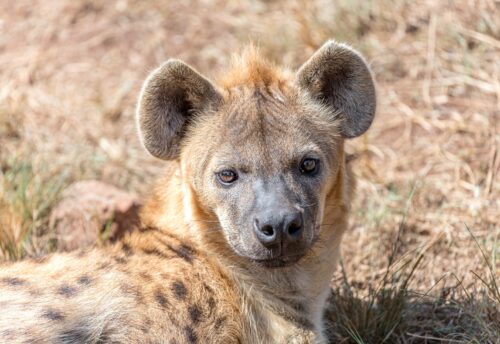Uganda for primates safaris-Mawa, Ngamba’s mischievous chimpanzee sanctuary
Ngamba Island Chimpanzee caretaker Stanley Nyandu assisting Mawa cut a cake during Ngamba Island chimpanzee sanctuary’s 10th anniversary celebrations on October 13. Mawa stands out of the crowd of chimps at Ngamba Island sanctuary. His escapades have forced the environment around him to change and not the other way round.
There is a lot that goes on in the thickets on Ngamba Island. Though it is frequently presented as a serene sanctuary that would make a haven even for human beings, the activities of its inhabitants are perhaps an even more revealing aspect of what is usually not said when stories about the wonders of Uganda tours.
Ngamba is home to 48 chimpanzees that are there mostly because they have been rescued from one danger or another. The apes are given the closest to heaven that they could possibly ever dream of. It is also the home of Mawa, the chimpanzee. Ngamba Island is situated about 23km from Entebbe Town.
Mawa stands out from the rest of the chimps on the island. Of the known animals there, this one chimpanzee has forced the environment around him to change and not the other way round. Usually, the surroundings around an animal will press in on the beast and behavioral change will occur or else the animal will be risking extinction.
Perhaps, because there are a few chimpanzees on Ngamba, anything peculiar that one of them does will be scrutinized and dissected. There are not very many chimpanzees in the world. An estimate by the International Union for Conservation of Nature in 2008 put the number of the apes at about 170,000.
Mawa spends his days in a large cage at the island run by the Chimpanzee Sanctuary and Wildlife Trust. He looks forlorn in his meshy prison though there are recreational facilities in the cage; the hammocks and rubber tyres, where he shows off his gymnastics.
He brought this on himself, according to Lilly Ajarova, the director of the sanctuary. “We had to cage him because of his continuous escapes from the forest and enclosures as a result of being fought by higher ranking chimps,” Ms Ajarova explains. “He was the alpha male of the juvenile group and when the group was integrated into the adult group, Mawa thought he was losing his power.”
Accordingly, the chimp decided to fight the system, as Ms Ajarova explains. Mawa was not ready to bow down to the new Alpha Male, the leader of the whole community. “This sparked off regular fights between him and other higher ranking chimps that wanted to be respected. This forced him to escape regularly as he could not stand the pressure.”
In the animal world, hierarchy is respected. Older chimps are usually bigger and more experienced. Mawa was a rookie looking to be respected without having gone through the school of hard knocks. That was not going to be accepted by the others.
But this fix also brought out in him the skills he is also known for. Whenever the fights started, he would try to jump the fence or he would just scale it. It is wire mesh structure with pulse electricity. According to Phillip Ssekulya, a guide, this means there is just enough electrical charge to stun the animals if they touch the fence but not strong enough to kill.
Apparently, Mawa cottoned to the idea that this was not a danger. While the chimpanzees mostly keep to the trees for the larger part of the day and only come to the fence when it is time for feeding, Mawa would run to the fence and scale it, pulse electricity and all.
Ssekulya speaks of the somersaults the chimp is known for. He is known for having taken on four or five bigger chimps and running rings around them with his gymnastics. “The apes would be greatly agitated because try as they might have wanted to, they just could not pin him down,” he recalls.
Mawa originated from the Democratic republic of Congo. Ajarova explains that the chimp was confiscated in Arua District where his captor was holding onto his dead mother and the baby chimp, about 16 years ago.
Many of the chimpanzees on the island were acquired in similar circumstances. Many communities in eastern Africa still prize game meat and even with the fact that chimpanzees are an endangered species, it is clear that a lot more sensitization about the benefits of conservation. Meanwhile, organizations like CSWCT continue looking for animals in danger and take them to Ngamba Island.


